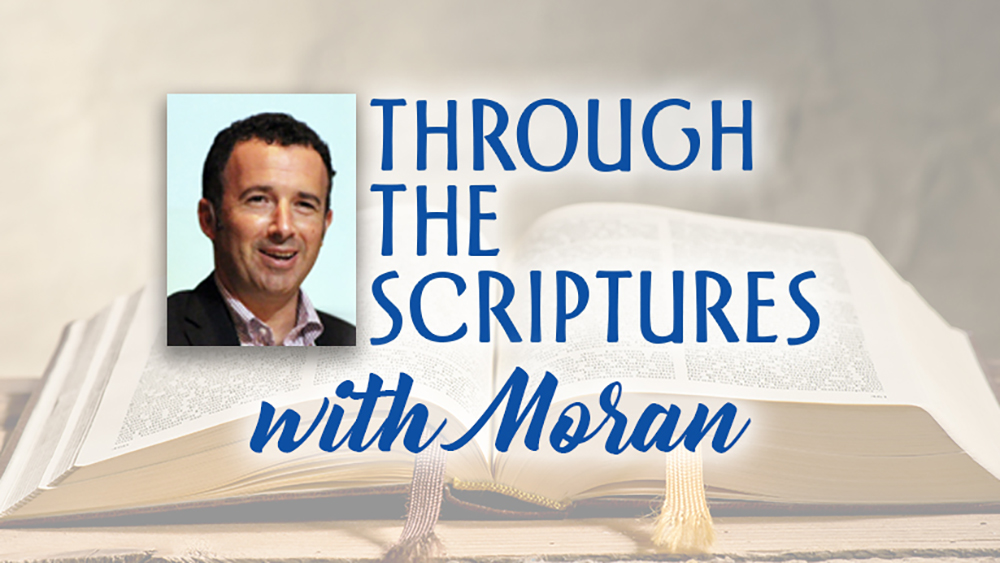
Parashat Beshalach (When He Sent)
Shemot (Exodus) 13:17–17:16
Haftarah: Judges 4:4–5:31
In both the Parasha and Haftara portions this week, we learn of the importance of having a heart of praise, a heart that acknowledges where all victories come from, and a heart that knows to give thanks to the Creator.
In the Parasha, we read of God’s final act of redemption of His people, rescuing the children of Israel from Pharaoh and his army at the “End Sea”. You may wonder why I call it the “End Sea” and not the "Red Sea"; at times important details can get lost in translation, and I think the literal translation of the sea is important to our understanding of the account. In Exodus 13:18, the English translation reads, “Hence God led the people around by the way of the wilderness to the Red Sea; and the sons of Israel went up in martial array from the land of Egypt.” In Hebrew, the name for the “Red Sea” is “Yam Sof”, which literally means, “the End (or Final) Sea.” The name of the sea actually foretells what was to happen to Pharaoh and his army as a final judgment on them, as well as the final redemption of the children of Israel! Later in Exodus 14, we read of that redemption when Moses tells the people of Israel:
But Moses said to the people, “Do not fear! Stand by and see the salvation of the LORD which He will accomplish for you today; for the Egyptians whom you have seen today, you will never see them again forever. The LORD will fight for you while you keep silent.”
Exodus 14:13–14
The children of Israel had nothing to do with the victory, which is the reason that Moses says they will "keep silent". This, I believe, is also the reason that the first 21verses of Exodus 15 are devoted to acknowledging God’s amazing power and victory over Egypt.
In our Haftara portion, we read of yet another incredible victory which the LORD provided for Israel, delivering them from the hands of Sisera who was the commander of the army of Jabin, King of Canaan. As you read this amazing account from Judges 4, you can find many parallels between our story from Exodus, which I highly encourage you to read and compare.
As we know from the story, God worked through Devora the prophetess, who judged Israel at that time, and Barak to bring His judgment over Sisera's army, but it was ultimately God who brought the victory:
And the LORD confused Sisera and all his chariots and all his army with the edge of the sword before Barak; and Sisera got down from his chariot and fled on foot.
Judges 4:15
Later on, we read that God worked through Yael to bring his final judgment on Sisera himself.
Just as in our Parasha, we also find here that after a great victory, Devora and Barak acknowledge the fact that it was God who brought the victory:
Then Deborah and Barak the son of Abinoam sang on that day, saying, “For the leaders leading in Israel, for the people volunteering, bless the LORD! Hear, you kings; listen, you dignitaries! I myself—to the LORD, I myself will sing, I will sing praise to the LORD, the God of Israel!”
Judges 5:1–3
In both accounts, we find the acknowledgment of the fact that the God of Israel is the one and only true God, who is holy and mighty, and the One who will fight our battles. We also find the need for us to live a life of trust and obedience to Him. To trust and obey God is a form of praise, or worship, where we live what we believe in all situations, not just after a victory. Even after seeing and experiencing all that God did in Egypt, the children of Israel continued to keep their eyes on the struggle instead of obeying Him, worshipping Him, and declaring Him as their holy and mighty God. Likewise, Barak did not trust God and needed Devora to come and "hold his hand" instead of standing firm on God’s promises.
Especially in the times in which we live today, the believer must make a decision to trust and obey God as an act of worship with a heart full of praise, not just after we have witnessed His victory, but also as we go through the daily struggles of life.
I would like to close with one of my favorite declarations and prayers from our Parasha:
Who is like You among the gods, LORD? Who is like You, majestic in holiness, awesome in praises, working wonders? You reached out with Your right hand,
the earth swallowed them. In Your grace You have led the people whom You have redeemed; In Your strength You have guided them to Your holy habitation.”
Exodus 15:11–13
Let’s worship our Redeemer as leads us by His amazing and endless grace to His place of Holy habitation.
Shabbat Shalom,
Moran

One Comment on “A Heart of Praise”
YES YES YES YES YES!!!!! TRUTH!!! HE IS WORTHY!!!!!!!!!